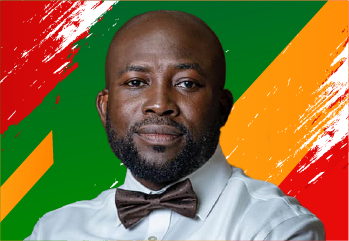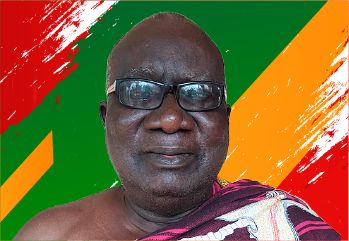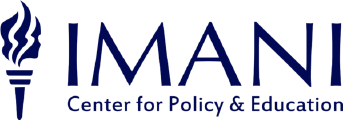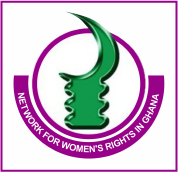The Ghana Compact
“Countrymen, the task ahead is great indeed, and heavy is the responsibility; and yet it is a noble and glorious challenge – a challenge which calls for the courage to dream, the courage to believe, the courage to dare, the courage to do, the courage to envision, the courage to fight, the courage to work, the courage to achieve – to achieve the highest excellencies and the fullest greatness of man. Dare we ask for more in life?”
Kwame Nkrumah
Why the Compact for Ghana?
Since Ghana returned to multiparty democracy with the Fourth Republic in 1992, the political underpinnings for economic transformation have been lacking, as economic plans and priorities shift with each new administration. With mounting economic difficulties and hardships, Ghana’s political leadership has at times seemed tied more to party interests and survival than to broader national interests, even with the advent of Covid. That explains why calls have been mounting for a national consensus on how to create job opportunities for the youth, enact constitutional reforms for better governance, and ensure increased transparency and accountability in public financial management to curb corruption and patronage. It is against this backdrop that the African Center for Economic Transformation has been collaborating with seven prominent policy institutes to develop and build consensus around a new approach.
It’s called the Ghana Compact for Political and Economic Transformation. The Ghana Compact is focused on a process to help articulate the future we want for Ghana by 2050. It is focused on a shared vision for our nation, outlining solutions for the country’s biggest challenges and identifying targets for tracking progress towards this vision.

The issues and challenges
Three overarching factors that have impeded Ghana’s transformation

The constitution


Fiscal or budgetary management


Development planning and program implementation

Top 6 major issues for Ghana
The six major issues of importance to ordinary Ghanaians

Access to quality education and skills for the future of work

Youth leadership and employment

Gender equality

Access to quality healthcare

Private sector growth and job creation

Climate change adaptation and mitigation
Compact Leadership Group
Composed of well-meaning Ghanaians from different backgrounds and experiences, the Ghana Compact Leadership Group has been set up to frame the values and visions that will be the foundation for crafting Ghana’s economic and political transformation. The group serve as ambassadors for the Ghana Compact and lead discussions and public engagements on on the “future of Ghana we want” agenda based on the economic and political issues and solutions outlined by Ghanaian think tanks working for the Ghana Compact. These engagements will take place on a local and district level to ensure that all Ghanaians have the opportunity to shar their hopes, thoughts and suggestions on the Ghana we want and how to get there.
As the voice and mouthpiece of the Ghana Compact the leadership group will interface with public on both traditional and digital media platforms.

Hajia Lamnatu Adam
Executive Director of Songtaba
Lamnatu Adam is a development practitioner with over 20 years’ experience in gender and human rights activism. She is focused on empowering marginalized populations such as women, children and the disabled. Currently, she runs Songtaba- an NGO that helps women acquire the skills required to earn an income and live independently and sustainably.

Sardia Mould
Chief Executive Director of Savannah International Academy
Sardia manages the Savannah International Academy, an institution which runs a special curriculum modelled to make children solve problems. Primarily established to bridge the education gap between the northern regions of Ghana and the south, SIA is a driver of the development agenda for northern Ghana and the entire country.

Rev. Charles Owusu Ampofo
Senior Pastor of Victory Baptist Church
A fervent man of God, Rev. Ampofo heads the Victory Baptist, a religious organization under the umbrella of the Ghana Baptist Convention. This popular church seeks to draw people closer to God and help disciple them for the Kingdom of God.

Christabel Dadzie
Senior Social Protection Specialist at the World Bank
An international development specialist with extensive experience in economic development, Christabel works with the World Bank and manages the Ghana portfolio to promote social inclusion and end extreme poverty. Upon returning to Ghana, she founded Ahaspora to support returnee transition. From 12 members at inception, Ahaspora has grown to over 1800 members.

Farida Bedwei
Software Engineer, Disability Rights Advocate
Farida is a software engineer known for her knowledge of software architecture and deploying mobile services, particularly for banking applications. Farida is also an author and a disability-rights advocate and has won local and international awards and was adjudged the most influential woman in business and governance (finance sector) for her work in computerizing the microfinance industry.

Senyo Hosi
Former CEO of Chamber of Bulk Oil Distributors
Mr. Hosi is a finance and economic policy analyst with management experience across varying industries including downstream petroleum and commodity trading. He serves on various boards including the Ghana Highways Authority Board and Ghana’s Ministry of Energy’s Ministerial Advisory Board. In 2016, he received the Oil and Gas Personality of the year award by the Offshore Africa Magazine.

Nana Okofo Amoako
Bondam III
Paramount Chief of Enyan Maim Traditional Area
Okofo Amoako Bondam III a.k.a. Dr. E.K Andoh is an experienced population economist who retired from the International Labor Organization in 2004. Over the years, Dr. Andoh has developed considerable competency in international and industrial relations, conflict management and dispute resolution, always upholding and advancing the principles of social justice, equity, and good governance.
Partner Policy Institutes

ACET
Founded by Dr. K.Y Amoako, the African Center of Economic Transformation is the organization leading the charge for the Ghana Compact. ACET is a policy institute / think tank based in Accra with a Pan-African mandate and global reach; focused squarely on economic transformation in Africa within a generation, ACET’s key areas are regional integration, economic management and governance, youth employment and skills, gender equality, private sector development, digital and innovation, climate, and agriculture. ACET produced the paper on Private Sector Development and collaborated with the National Development and Planning Commission to create the National planning paper.

CDD-Ghana
The Ghana Center for Democratic Development (CDD-Ghana) is an independent, not-for-profit research and advocacy think tank working to advance democracy, good governance, and inclusive economic growth. CDD-Ghana works to complement the broader objectives of strengthening democratic governance, the principles of popular participation and the demand for public accountability. In partnership with IDEG, CDD Ghana put together the paper on the Constitution.

Afrobarometer
Afrobarometer is a pan-African, non-partisan survey research network that provides reliable, timely data on the views of ordinary Africans to inform development and policy decision making. Afrobarometer collaborated with ACET to produce the paper on Youth, Employment and Skills.

IFS
As a politically independent non-profit think-tank committed to contributing to ghana’s fiscal management and macroeconomic transformation and providing economic policy advice and advocacy Institute of Fiscal Studies were uniquely positioned to develop the paper on Fiscal Responsibility.

IDEG
Established in the year 2000 the Institute for Democratic Governance (IDEG) was created to contribute to the "establishment of a just and free society" in Ghana that is democratic, prosperous, integrated and secure in the West African sub-region and beyond. Together with CDD-Ghana, IDEG produced the paper on the Constitution.

IMANI
Responsible for the Health and Climate paper, the IMANI Center for Policy & Education has carved a niche in Ghana’s policy environment for putting out objective, independent analysis and critique on many issues, using tried and tested techniques that apply across different disciplines.
ISSER
Currently serving as the research wing under the College of Humanities, University of Ghana, the Institute of Statistical, Social and Economic research conducts policy relevant research to provide policy makers with solutions for national development. ISSER contributed to the Fiscal Responsibility paper.

NETRIGHT
Was started by a group of individuals and organizations as a response to identified gaps in the approach of CSOs working on women’s rights issues. NETRIGHT is working to bring a gender perspective into national processes and policy interventions. In line with this objective, Netright was the lead contributor of the paper on Gender.
Start up Event
The Ghana Compact Retreat was held at the Peduase Valley Resort from July 13th to 14th. The retreat which was convened by the African Center for Economic Transformation brought together over 50 participants. The overall objectives were to discuss technical papers prepared by leading policy institutes, set out the roadmap for national consultations, review progress in planning for the launch of the Compact and to deliberate on the way forward to ensure the success of the Compact.
The Compact for Ghana aims to define the future we want

2022 © All rights reserved. The GHANA COMPACT.